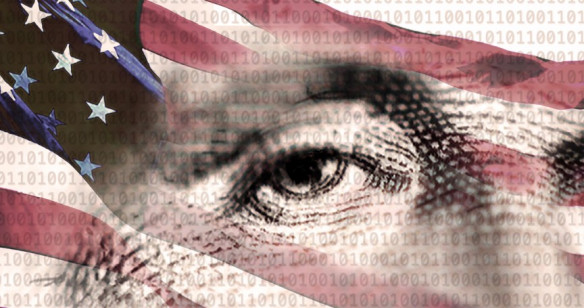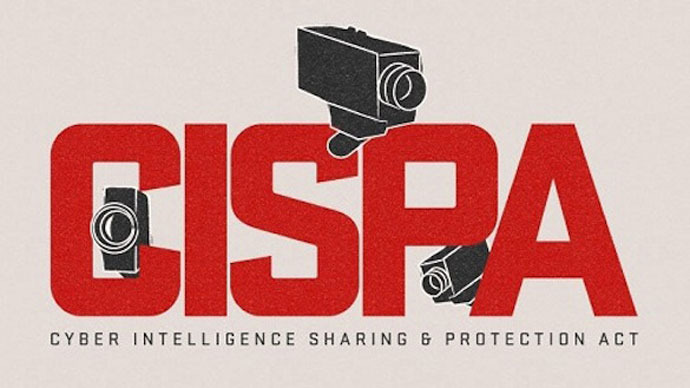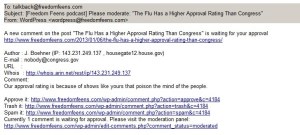The IRS, currently in the midst of scandals involving the targeting of conservative groups and lavish taxpayer-funded conferences, is ordering surveillance equipment that includes hidden cameras in coffee trays, plants and clock radios.
The IRS wants to secure the surveillance equipment quickly – it posted a solicitation on June 6 and is looking to close the deal by Monday, June 10. The agency already has a company lined up for the order but is not commenting on the details.
“The Internal Revenue Service intends to award a Purchase Order to an undisclosed Corporation,” reads the solicitation.
“The following descriptions are vague due to the use and nature of the items,” it says.
“If you feel that you can provide the following equipment, please respond to this email no later than 4 days after the solicitation date,” the IRS said.
Among the items the agency will purchase are four “Covert Coffee tray(s) with Camera concealment,” and four “Remote surveillance system(s)” with “Built-in DVD Burner and 2 Internal HDDs, cameras.”
The IRS also is buying four cameras to hide in plants: “(QTY 4) Plant Concealment Color 700 Lines Color IP Camera Concealment with Single Channel Network Server, supports dual video stream, Poe [Power over Ethernet], software included, case included, router included.”
Finishing out the order are four “Color IP Camera Concealment with single channel network server, supports dual video stream, poe, webviewer and cms software included, audio,” and two “Concealed clock radio.”
“Responses to this notice must be received by this office within 3 business days of the date of this synopsis by 2:00 P.M. EST, June 10, 2013,” the IRS said. Interested vendors are to contact Ricardo Carter, a Contract Specialist at the IRS.
“If no compelling responses are received, award will be made to the original solicited corporation,” the IRS said.
The original solicitation was only available to private companies for bids for 19 business hours.
The notice was posted at 11:07 a.m. on June 6 and had a deadline of 2:00 p.m. on Monday. Taking a normal 9-to-5 work week, the solicitation was open for bids for six hours on Thursday, eight hours on Friday, and five hours on Monday, for a total of 19 hours.
The response date was changed on Monday, pushed back to 2:00 p.m. on Tuesday, June 11.
The location listed for the solicitation is the IRS’s National Office of Procurement, in Oxon Hill, Md.
“The Procurement Office acquires the products and services required to support the IRS mission,” according to its website.
In recent weeks the IRS has been at the center of multiple scandals, admitting to targeting Tea Party groups and subjecting them to greater scrutiny when applying for non-profit status during the 2010 and 2012 elections.
A report by the Treasury Inspector General for Tax Administration revealed that groups with names like “patriot” in their titles were singled out, required to complete lengthy personal questionnaires (often multiple times) and having their nonprofit status delayed, sometimes for more than three years.
Last week a second Inspector General report detailed nearly $50 million in wasteful spending by the agency on conferences, in which employees stayed at luxurious Las Vegas hotels, paid a keynote speaker $17,000 to paint a picture of U2 singer Bono, and spent $50,000 on parody videos of “Star Trek.”
Requests for comment from the IRS and Mr. Carter were not returned before this story was posted.
CNSNews.com asked IRS spokesmen Dean Patterson and Anthony Burke to explain the reasoning behind the solicitation, where the surveillance equipment will be used, why the request was so urgent, and whether the request has anything to do with the recent scandals at the IRS.
http://cnsnews.com/news/article/irs-buying-spying-equipment-covert-cameras-coffee-trays-plants






 We noted yesterday that government officials aren’t trying to keep the spying programs secret to protect national security, but
We noted yesterday that government officials aren’t trying to keep the spying programs secret to protect national security, but 

 The plan is to vary vehicle tax based on usage, so drivers who don’t drive during peak times, or stay out of city centres, get discounted road tax, but the Ministry of Finance and the Ministry of Transport are adamant that any solution will have to protect the privacy of drivers who might not want every journey recorded and logged forever.
The plan is to vary vehicle tax based on usage, so drivers who don’t drive during peak times, or stay out of city centres, get discounted road tax, but the Ministry of Finance and the Ministry of Transport are adamant that any solution will have to protect the privacy of drivers who might not want every journey recorded and logged forever. (fromthetrenchesworldreport.com) The communist insurgents within the United States continue their push to disarm we American nationals, even to the point of presenting poll numbers which have been proven to be false via their own previous admissions. Captain Mark Kelly, the husband of ex-Congresswoman Gabrielle Giffords, was making the rounds over the weekend, spouting his sedition while trying to present himself as some kind of American hero.
(fromthetrenchesworldreport.com) The communist insurgents within the United States continue their push to disarm we American nationals, even to the point of presenting poll numbers which have been proven to be false via their own previous admissions. Captain Mark Kelly, the husband of ex-Congresswoman Gabrielle Giffords, was making the rounds over the weekend, spouting his sedition while trying to present himself as some kind of American hero. Ben Emmerson wants to be clear: He’s not out to ban flying killer robots used by the CIA or the U.S. military. But the 49-year-old British lawyer is about to become the bane of the drones’ existence, thanks to the United Nations inquiry he launched last week into their deadly operations.
Ben Emmerson wants to be clear: He’s not out to ban flying killer robots used by the CIA or the U.S. military. But the 49-year-old British lawyer is about to become the bane of the drones’ existence, thanks to the United Nations inquiry he launched last week into their deadly operations.


